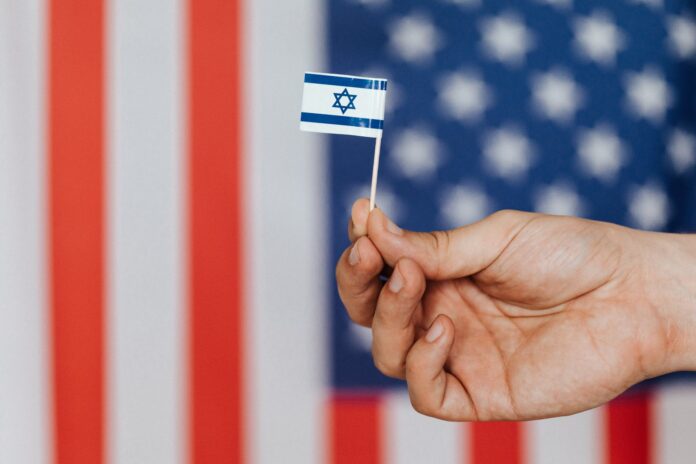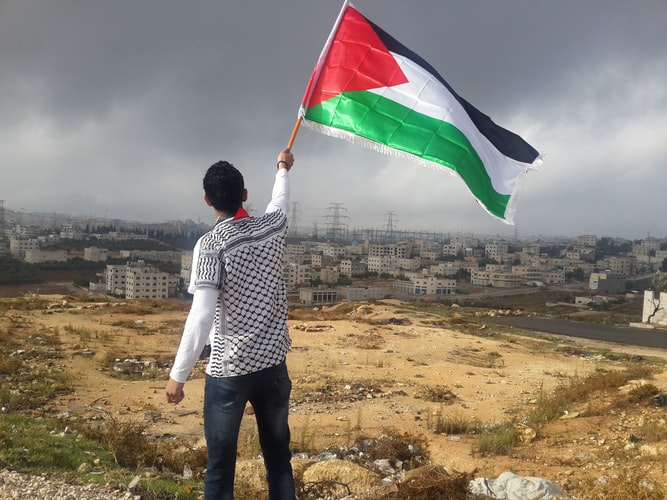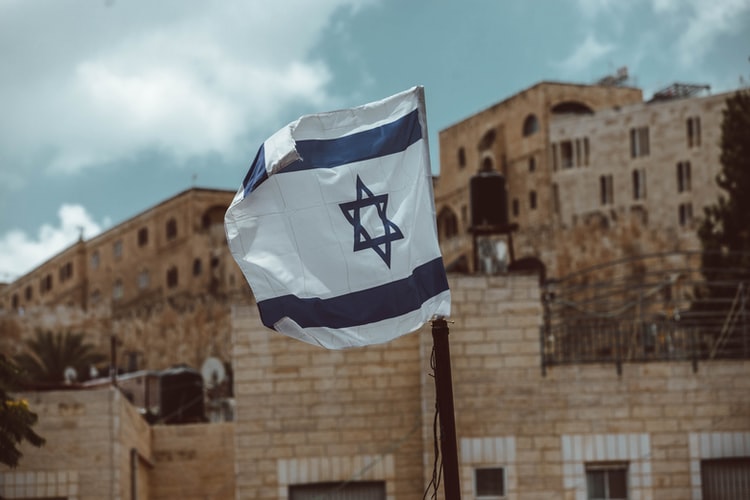By Venia Kontogianni,
September 15th marks the day that seemingly, a new and calm era dawned upon a once turbulent part of the Middle East. After decades of turmoil, the state of Israel, the United Arab Emirates, the Kingdom of Bahrain and the United States of America signed the Abraham Accords Declaration, in an amiable atmosphere at the White House’s South Lawn, after negotiations that were mediated by the U.S.. Scenically, it echoed a lot the 1978 Camp David Accords. The Declaration entails the normalization of their relations, i.e. diplomatic relations and economic partnerships.
As of September, four Arab states in total have not only fully recognized Israel, but have also established mutual diplomatic relations with it; five, if the now-inactive short-lived May 17th of 1983 Agreement between Israel and Lebanon during the Lebanese Civil War is to be accounted for. Egypt and Jordan have been the first two, after their respective Treaties in 1979 and 1994. Israel and its newfound Gulf friends are expected to proceed in establishing embassies and working cooperatively in all facets of interstate matters, such as communications, tourism, trade, healthcare and agriculture. Muslims can now unrestrictedly pray at the Al-Aqsa mosque in Jerusalem, according to President Trump. Middle Eastern businessmen and Israeli estimates regarding the deal are particularly optimistic, placing their expected yearly turnover from Israel-UAE trade in the billions.
Although carrying a tumultuous past, UAE-Israeli relations have been quite smooth in the last decade, so much as to have conducted joint military exercises in the U.S. back in 2016. It is no secret that both countries wish to decrease Iran’s influence in the region; let us not forget that Iran possesses one active nuclear reactor in the Bushehr Nuclear Power Plant, albeit claiming their nuclear technology program only serves peaceful national purposes, as usage of nuclear bombs is haram, i.e. forbidden by religion, according to Iran’s Supreme Leader Ayatollah Ali Khamenei. However, it was not until August of this year, following the announcement of the peace agreement, that the UAE cleared the road for immediate telecommunications between the two nations by unblocking direct calls to Israel’s +972 country code. At the same time, a commercial plane was allowed to fly directly from Tel Aviv to Abu Dhabi over Saudi Arabian airspace for the first time -a route that proved very cost-effective. Another token of respect for their agreement was a bilateral deal on Covid-19 research. The two signatories continue to demolish diplomatic “roadblocks”, because as of October 20th, Israeli and Emirati citizens no longer need a visa when traveling to each other’s countries.
During the signing ceremony, President Trump spoke of more countries joining their deal soon. So, it came as no surprise when, at the end of October, Sudan joined the coalition. This was not an easy decision on Sudan’s part, as the country is deeply divided and the United States reportedly presented a long list of demands, notably Sudan ending commercial relationships with China and allowing the U.S. to operate a military base there. It seems like all’s well that ends well, since President Trump removed Sudan from the list of State Sponsors of Terrorism, a spot the latter had earned after the 1998 U.S. Embassy bombings in Dar es Salaam and Nairobi. Moreover, the U.S. and Israel will help Sudan with its economy and food shortages. Israel has reportedly already sent to it $5 million worth of wheat.
How was the deal perceived by neighbors?
Turkey, Iran and Palestine have unanimously rebuked the agreement, each for their own reasons. Iran detests it because it perceives it as an isolation tactic, a diplomatic bulwark, made to surround and alienate it – and that is not far from the truth. The deal bolsters the line between Sunni UAE, Sunni-governed Bahrain and Shiite Iran. It is worth noting that Iran and China maintain close relations, though a spokesperson on behalf of Iran’s Ministry of Foreign Affairs dismissed a rumored $400bn deal between Tehran and Beijing that had been circling the media back in July.
As for Palestine, Prime Minister Netanyahu has been vocal about his desire to -illegally- annex 30 percent of the Jordan Valley, including Jewish settlements on a fertile strip of land, leaving them zero to no access to the Jordan river, which is vital for their being. The Palestinians had hoped for this region to become part of their independent state. However, in light of the Accords, Israel said it would not be following through with this plan – at least, not for now. Earlier this year, Palestine rejected President Trump’s “Peace to Prosperity: A Vision to Improve the Lives of the Palestinian and Israeli People” plan. It is a proposition pertaining to the resolution of the Israeli-Palestinian conflict, showing new borders, which Palestine saw as unjust. Generally, the U.S. advocates for Israel and tends to exclude Palestine from any negotiations. Consequently, Palestine feels completely disregarded and unheard even by its fellow Arab states, the UAE and Bahrain, who, by signing the Abraham Accords, indirectly concur to Israel’s actions and behavior towards it. This deal renders Palestinians all the more uncertain for what is to come, and brings forward a feeling of being cornered.
Turkey, on the other hand, has its own plans for the southeastern Mediterranean, so a new friendship among technologically and economically advanced countries close to the area where it wants to dominate, could only disrupt them. Moreover, Turkey faces a trade embargo by Saudi Arabia and Morocco, which raises the question of whether these two are the next in line to join the Abraham gang. Saudi Arabia has been blocking Turkish exports since the summer of 2019 due to political tensions, a ban that lately has been affecting even renowned fashion chain stores. At the other end of the Arab world, Morocco began boycotting Turkish products this October on the grounds that it is a balancing action, aiming to correct the uneven profits Turkey and Morocco had been making because of their 2004 Free Trade Agreement. According to Morocco’s Minister of Industry, Trade and New Technologies, Moulay Hafid Elalamy, the country loses up to $2 billion yearly because of that deal.
Overall, this deal may bring stability to the ones who have signed it, but it could simultaneously work as a hotbed for new frictions, if new coalitions are created against it. For the perturbed, disorderly societies of the western Arab world, like Sudan, joining the Accords would equal economic integration with the region’s top economies – something they highly need. Social polarization, though, could worsen. For Israel, the deal signifies a further recognition of its state and practices. For the UAE and Bahrain, it is another step towards isolating Iran. For Palestine and Iran, it underlines the need to acquire powerful allies, so as to not be engulfed by it…no pun intended. The signing leaders spoke of a pivotal, historic moment; however, it seems that peace and tension are two directly proportional amounts when speaking about this part of the world.
References
- U.S. Department of State, The Abraham Accords Declaration. Available here.
- The White House, Abraham Accords Peace Agreement: Treaty of Peace, Diplomatic Relations and Full Normalization Between the United Arab Emirates and the State of Israel, Available here.
- The White House, Peace To Prosperity: A Vision to Improve the Lives of the Palestinian and Israeli People. Available here.
-
International Court of Justice, Legal Consequences of the Construction of a Wall in the Occupied Palestinian Territory. Available here.International Commission of Jurists, Israel-Palestine: measures toward annexation of the Occupied Palestinian Territory must be reversed – ICJ analysis. Available here.
- Republic of Turkey – Ministry of Trade, Free Trade Agreements – Morocco. Available here.
- France Diplomatie – Ministère de l’Europe et des Affaires Étrangères, Sudan – Normalization of relations between Sudan and Israel (27 October 2020). Available here.
- International Atomic Energy Agency, Islamic Republic Of Iran. Available here.
- World Nuclear Association, Nuclear Power in Iran. Available here.
- The Moshe Dayan Center for Middle Eastern and African Studies, How the Abraham Accords affected the Turkish Foreign Policy? Available here.
- History, Oslo Accords. Available here.
- The World, Palestinians worry about the impact of the Abraham Accords. They say it’s time to elect new leaders. Available here.
- Atlantic Council, The Abraham Accords plays into Iran’s hands and opens the door for al-Qaeda. Available here.
- Middle East Institute, China and the Abraham Accords Peace Agreement. Available here.
- The Wall Street Journal, U.S., Israel, U.A.E., Bahrain Sign Peace Accord. Available here.
- Al Jazeera, ‘Not safe to go back’: Sudanese in Israel fear deportation. Available here.
- Middle East Monitor, The threat to peace has forced Sudan to normalise with Israel. Available here.
- Middle East Monitor, Israel to deliver wheat worth $5m to Sudan. Available here.
- Middle East Eye, Morocco’s restrictions on Turkish goods raise suspicions it’s joined Saudi boycott. Available here.
- Middle East Eye, Unofficial Saudi ban on Turkish exports hits fashion brands Available here.
- Reuters, Saudi imports from Turkey rise in August despite informal boycott. Available here.
- Reuters, Iran’s Khamenei says building, using nuclear bomb is forbidden under its religion: TV. Available here.
- BBC, Israel-UAE peace deal ‘big’ for trade in Middle East. Available here.
- BBC, Israel and UAE launch direct phone links after historic accord. Available here.
- Financial Times, Informal Saudi ban on Turkish goods hits global fashion retailers. Available here.
- The Atlantic, Iran and the Palestinians Lose Out in the Abraham Accords. Available here.
- Arab News, Campaign to boycott Turkish products gains momentum. Available here.
- The Jerusalem Post, History will judge UNSC for failing to embrace Abraham Accords. US says. Available here.
- The Times of Israel, Trump: Up to 10 countries set for peace with Israel, ‘largely after’ elections. Available here.
- The New Arab, UAE ministers in Israel to sign mutual visa waver agreement during first official visit. Available here.
- Britannica, International recognition of the PLO. Available here.
- The North Africa Post, Morocco Loses up to $2 Billion in Trade Imbalance with Turkey. Available here.
- Flight Global, El Al plans to cross Saudi airspace with 737 to reach UAE. Available here.
- The Conversation, How the Abraham Accords could create real peace in the Middle East. Available here.
- Youtube, UAE, Israel and Bahrain sign historic peace deal at White House | ITV News. Available here.
- Youtube, Copy of Watch live: Trump hosts Israel, Bahrain and UAE for signing of historic diplomatic deals. Available here.
- Youtube, What does Israeli annexation of the West Bank mean? Available here.
- Youtube, Can IRAN get the NUCLEAR BOMB? – VisualPolitik EN. Available here.
- Youtube, Israel? Palestine? Trump’s Mideast peace plan explained | DW News. Available here.






